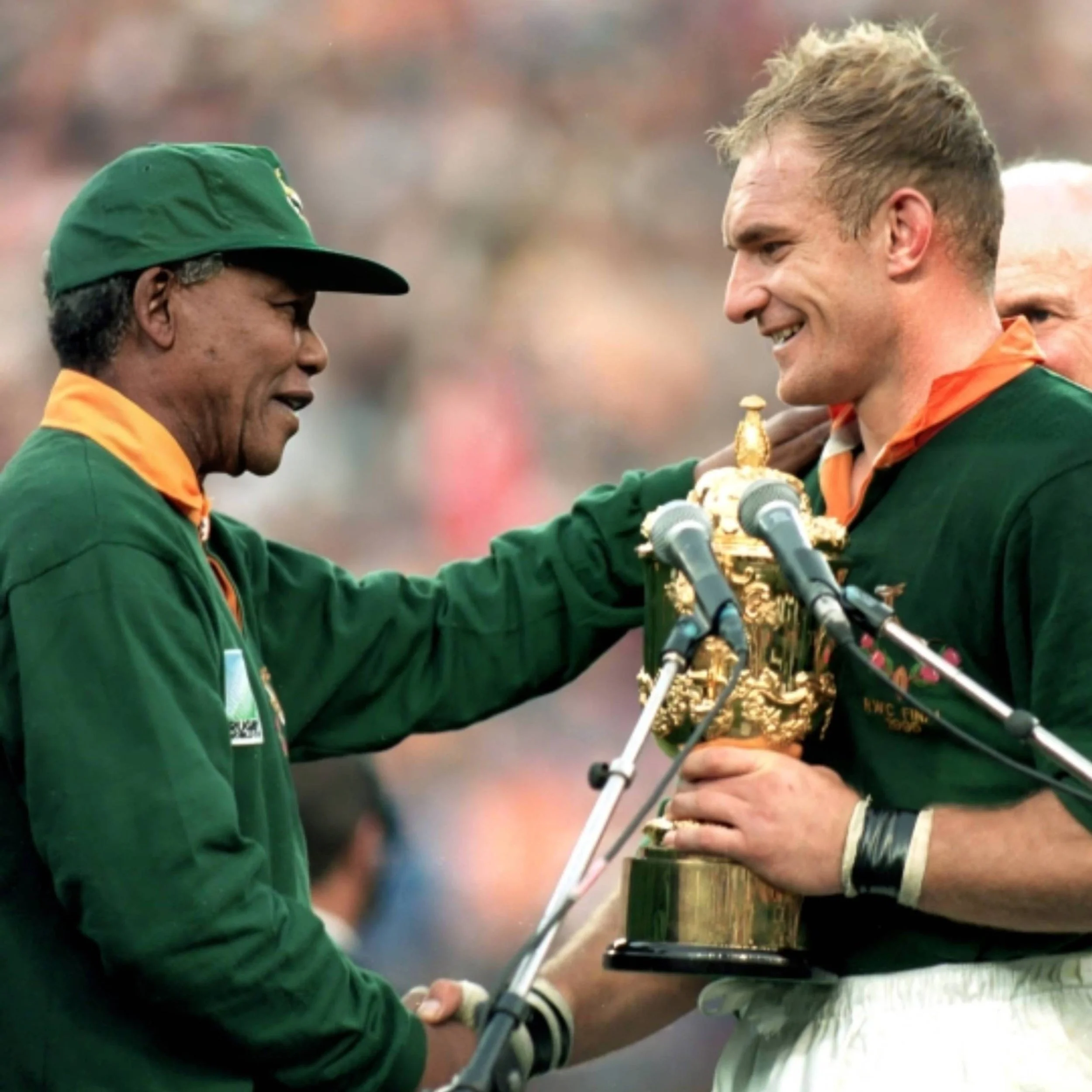FROM SEGREGATION TO CELEBRATION: HOW RUGBY BROKE BOUNDARIES AND BUILT BRIDGES IN SOUTH AFRICA
By Olivia McWain
In 2018, Siya Kolisi became the first Black captain of South Africa’s national rugby team, the Springboks, leading it to another win in the 2019 World Cup. Upon joining the team in 2013, he wasn’t the team’s first Black player, but in another historic victory, he was the first Black player to lead the team in a Test match.
“It would be huge to show that us as a country, no matter where we come from, that we can bind to one plan and we can achieve our goals,” Kolisi said in an interview ahead of the 2019 championship when asked what it would mean to him to lift the World Cup.
The interview was referenced in 1895 Films’ award-winning documentary, “The Moment: How Sports Changed The World,” which premiered in 2023 on Amazon Freevee UK. Since then, it has won the Best Sports TV Content Award at the Venice TV Awards.
Using archival footage, the film dives into the history of South African apartheid, Nelson Mandela’s efforts to unite the nation through rugby, and the impact on the Springboks today.
There was a time when no one could have ever imagined the Springboks rugby team would have a Black captain.
In 1995, the Springboks competed in the Rugby World Cup match against the New Zealand All Blacks – making it the first major sporting event after apartheid in South Africa ended.
It was likely a shock to many, both Black and white, when the country’s first Black president Nelson Mandela walked onto Johannesburg’s Ellis Park Stadium field at the end of the match proudly sporting the Springbok team jersey.
The dark green rugby jersey that featured a Springbok emblem on the right side of the chest was a symbol of hate in the eyes of Black South Africans during apartheid. The Springboks was a historically white rugby team, and its jersey was associated with white supremacy.
Although segregated before, Rugby had once been a sport that both Black and white South Africans could play, but separately. After apartheid laws went into effect, Black teams were denied the use of training facilities and pitches altogether.
Nelson Mandela saw the importance of forgiveness and teamwork to build a better future for all South Africans. The skill and determination of the Springboks led them to victory and Black and white South Africans celebrated the achievement together.
During a time of oppression and following apartheid in South Africa, Nelson Mandela viewed rugby as a rope to lessen the divide and force unity between Black and white South Africans. The ability to unite the country of South Africa and promote reconciliation between different racial groups is just one of Nelson Mandela’s many notable achievements.

